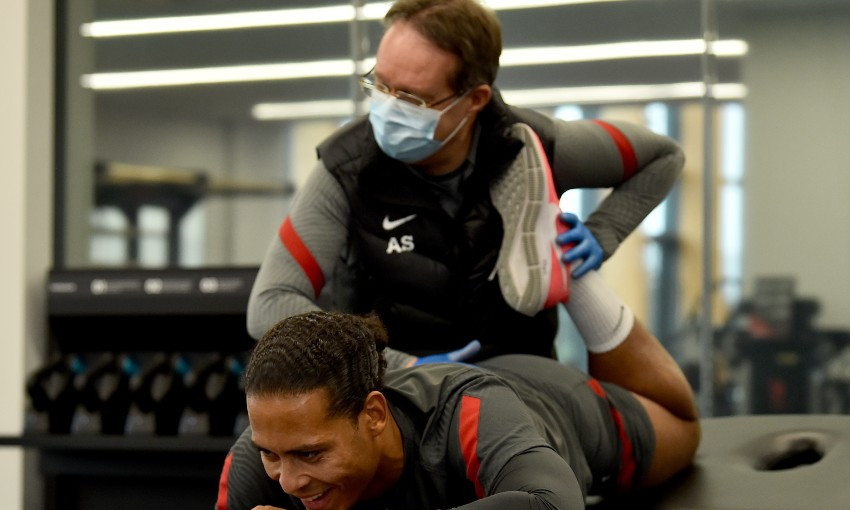Details, teamwork, rapports: How Andreas Schlumberger helps LFC's injured players
“I always say we are a little bit like criminal detectives…”
Dr Andreas Schlumberger uses this descriptive analogy as he outlines some of the “small details” around which his job revolves.
“…we communicate with the players, we make assessments, we have a lot of data on the players and we always try to make the right decisions on an individual basis.”
Schlumberger is Liverpool’s head of recovery and performance, and the most recent addition to Jürgen Klopp’s backroom staff.
Formerly of clubs including Bayern Munich, Borussia Dortmund and Borussia Monchengladbach, he joined the Reds from Schalke 04 at the turn of the year amid a season he considers to be the most challenging of his career to date.
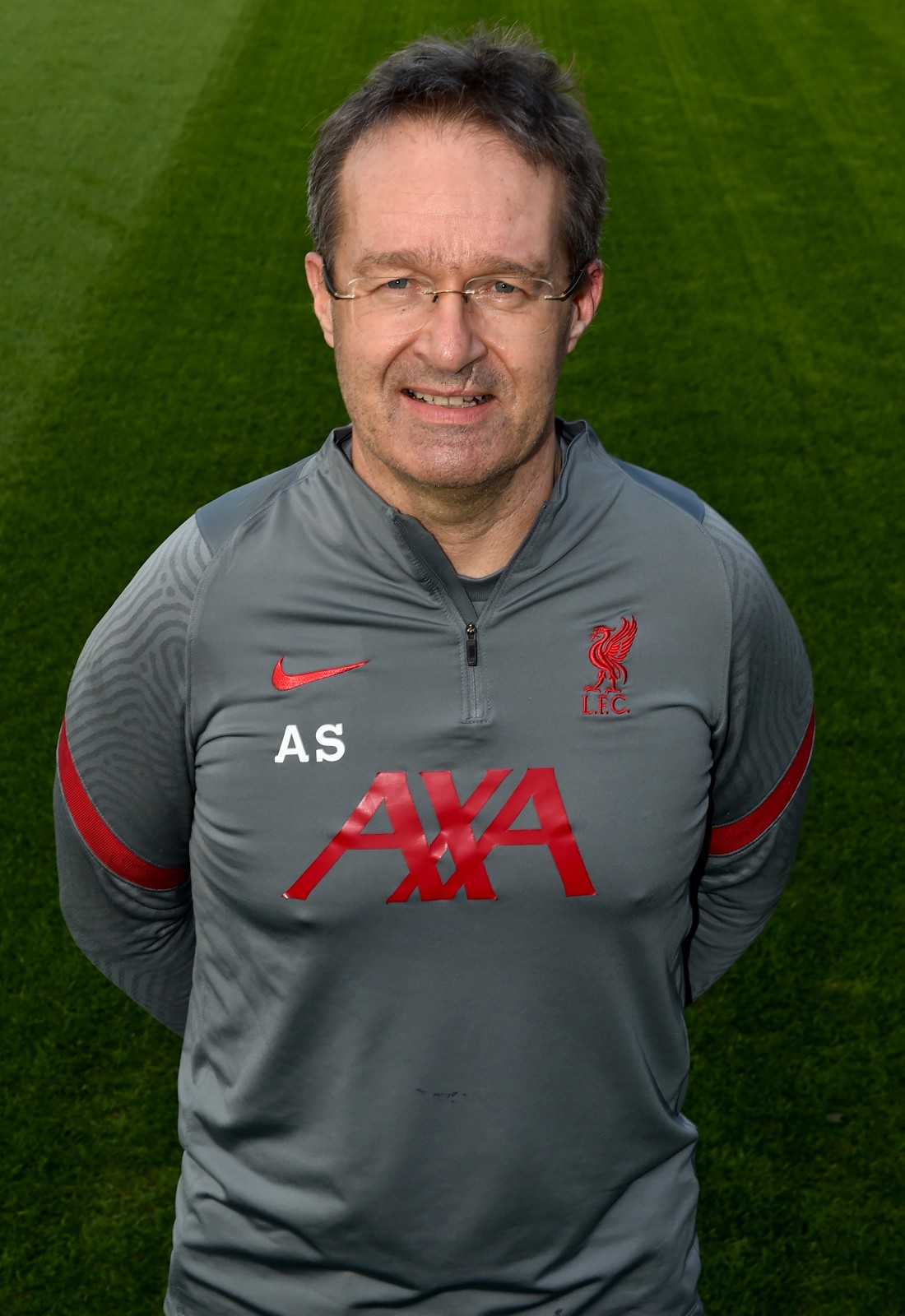
“On the one hand, I work to optimise the rehabilitation process and I also do practical work together with the medical team behind rehabilitation,” begins Schlumberger’s broader overview of his role, during a recent conversation with Liverpoolfc.com.
“And on the other hand, ‘recovery and performance’ involves giving some support to the sports scientists, to the fitness coaches and also looking at players coming back from injury: how their rehab progresses, how they are reintegrated, if they are ready to be back in team training and so on.
“I would say these are the main responsibilities I have. The processes in these areas were already first class at Liverpool FC, so I support those while providing a new perspective based on my own experiences.”
Circumstance and fate led Schlumberger to the professional pathway that eventually brought him to Merseyside.
“My interest in rehabilitation started when I got a severe ankle injury as an amateur player when I was 21. It was in 1988 and I did not have an optimal rehabilitation because these were different times and I was not a professional player,” he recalls.
“I had a bad rehabilitation result which led to me having to stop my football career, so this was a big motivation for me to learn more about it and to try to have an influence in my professional career on how injured players can be rehabilitated optimally.”
A degree in sports science and medicine from Frankfurt University - where he studied alongside Klopp - followed, before he spent over a decade working in a renowned rehabilitation clinic for elite athletes near Munich.
Part-time roles with the German FA and FC Nurnberg coincided with Schlumberger’s time in Bavaria, which finished when he received a call from the former classmate who was three years into a transformative managerial reign around 400 miles north.
“In 2011 I started at Borussia Dortmund, working purely in football for the first time.”
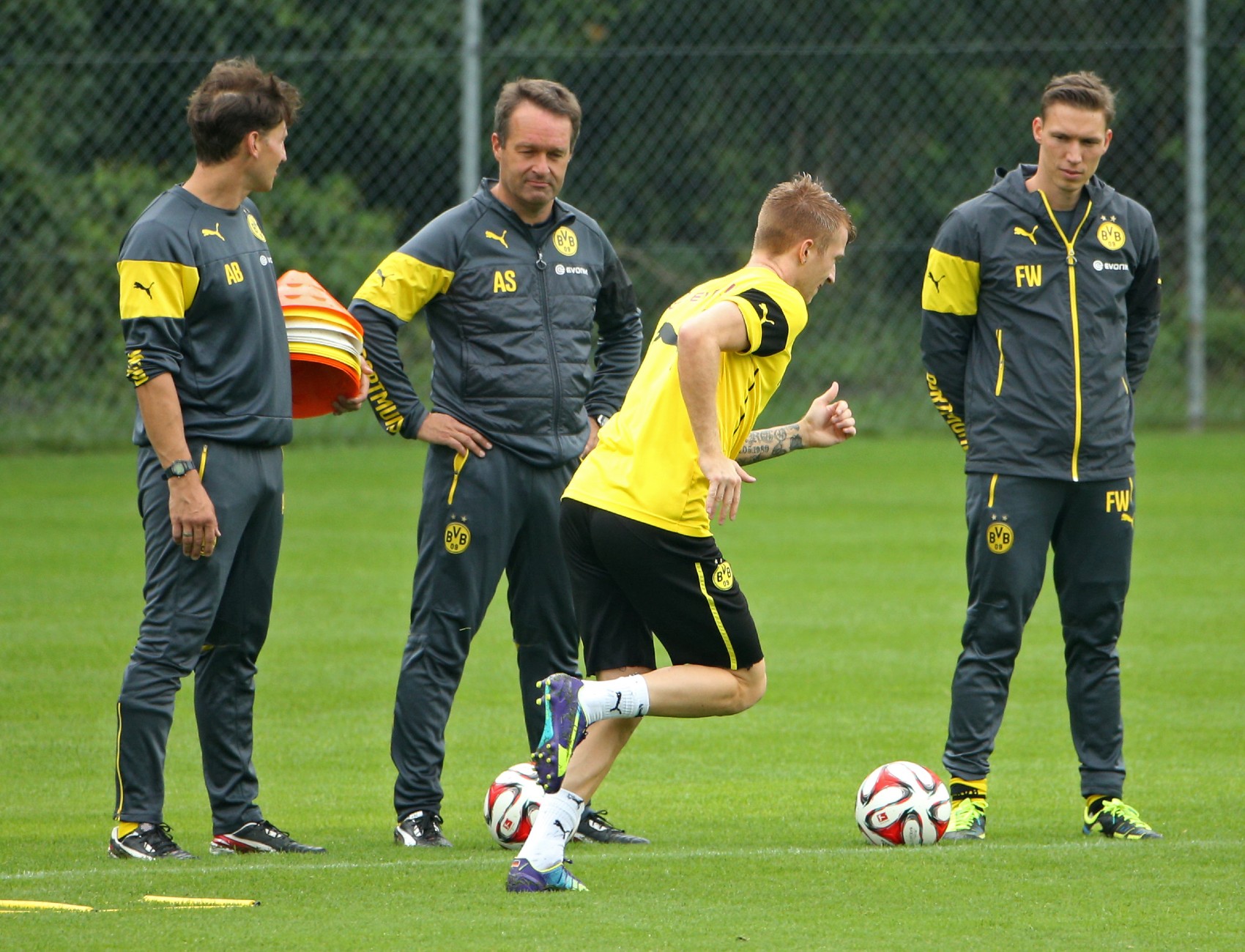
And, nearly 10 years later, a similar conversation would take place.
“I’ve been in contact with Jürgen Klopp for a long time,” Schlumberger states.
“I worked with him for four years at Dortmund and when we got in contact at the end of last year, we were talking about the possibility of working together here [and] finding solutions for how I could be integrated so that it makes sense in the backroom staff of Liverpool FC.
“At the same time it was clear that I will be free, so it was the right time to start the collaboration here.”
Schlumberger’s daily work at the AXA Training Centre is ordinarily split between two points of focus: rehabilitation and team training.
If, for example, that day’s group session is scheduled to begin at 4pm, Schlumberger’s morning starts with meetings with members of the football and sports science departments regarding rehabilitation, before the injured players arrive to continue their respective programmes.
Later, in the early afternoon, Schlumberger will participate in pre-training meetings with coaching and medical staff as each player’s level of involvement in the upcoming session is decided.
“It might be that some players do some individual things in pre-activation while team training is on, and so on. That’s the typical day: half of the day is rehab and the other half is all things around team training.”
Close collaboration with the teams headed up by Lee Nobes and Andreas Kornmayer - physiotherapy and fitness respectively - is vital.
“In Lee’s department, there are all the rehab physios and also Dave Rydings, the rehab fitness coach. All the meetings, all the practical planning, the ‘return to play’ or ‘return to training’ decisions - that’s where I have the close relationship with Lee and his department,” Schlumberger details.
“That means we plan the practical training day by day and also put together long-term plans for each player so it is a very intensive collaboration.
“Then, on the other side with Andreas and the fitness department, we do a lot of planning regarding individual programmes, particularly in terms of what the players do in the gym before training and whether we have to change some loading for them - especially if they are coming back from injury.
“That means we talk about individual load management. This is what Andreas and his department are doing a lot and I also try to contribute from my perspective in this field.”
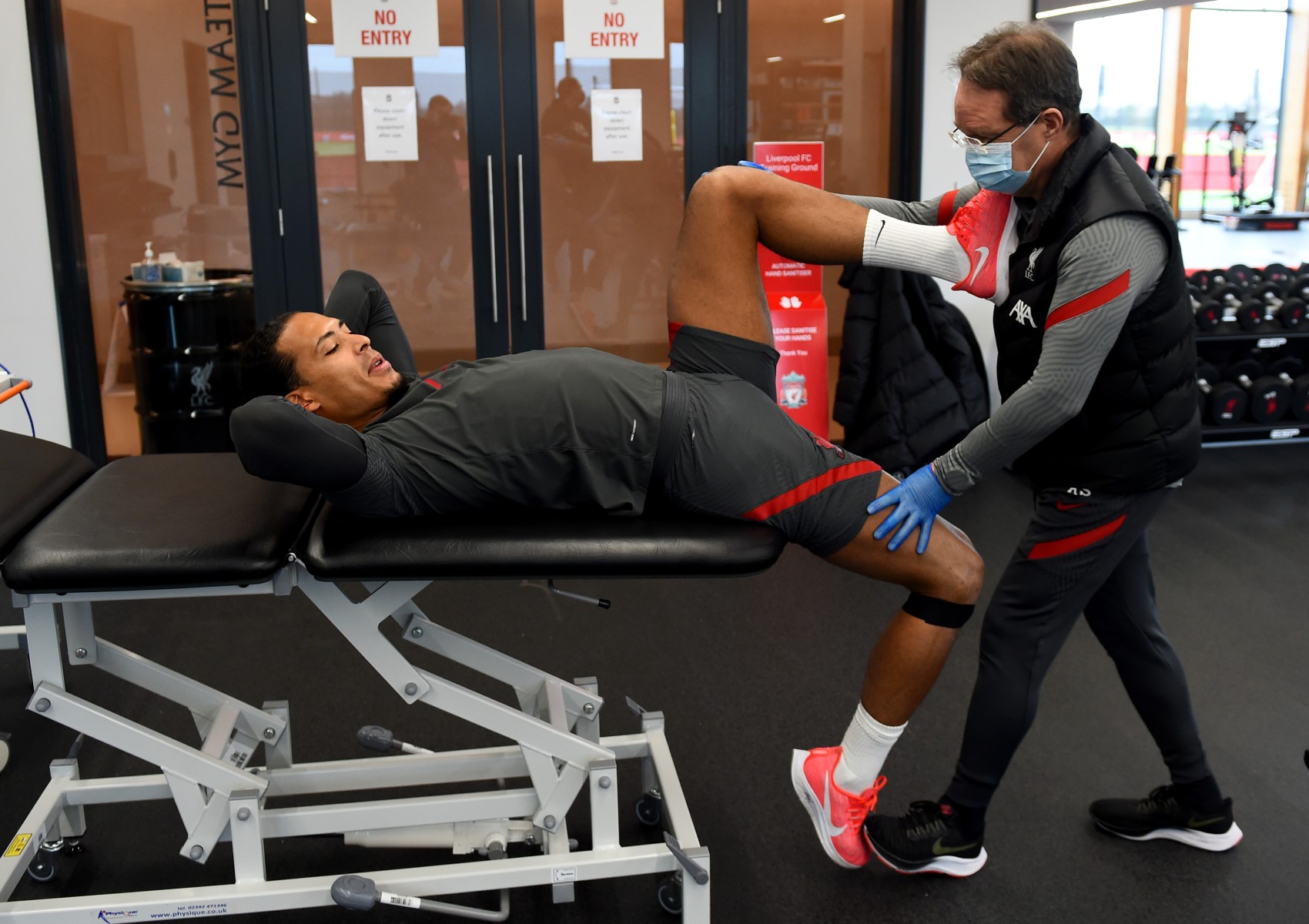
Injured players recovering to all manner of timescales receive Schlumberger’s attention, while he also values greatly the establishment of personal relationships with each individual - which can take on particular importance during periods of rehabilitation programmes completed away from Kirkby.
“It does not really matter whether they are short or long-term injured,” he notes.
“Obviously the intensity of the work is a little bit more orientated towards the long-term injured players because you have to observe a lot more.
“But on the other hand, with the short-term injuries there is a big risk of underestimating things so it’s also important to contribute to the discussions and the decision-making on this because one day too early or too late makes a big difference for the team [and] for the risk of re-injury.
“I have now been here for a few months so, like the doctors and the physios, I try always to have contact with the players; about how they are feeling, about their mood.
“The first days after injury are very important and I know about this not only because I have experience with injured players. I myself had severe injuries when I was an amateur football player so it’s very important that you develop this feeling for the players as early as possible.”
A core aspect of Schlumberger’s role is assisting in Liverpool’s ‘return to training’ protocol, which determines when a player is ready to fully re-join sessions with their teammates.
“First of all, I have to say that before I came to Liverpool FC, we were already on a very, very good level regarding these processes and decision-making,” he states.
“But the challenges to bring players back are so high, to have somebody like me in the team is an attempt to improve, to have another guy looking with a different perspective at these things.
“Regarding how we come to the decisions, this is a long-term process because it starts with the rehab in the first days after the initial injury. This is on an excellent level at Liverpool FC, with daily assessments and then with assessments after weeks or months about the physical state, about the injury and so on.
“Then we go on with very clear load management, observing how the progress of the player is [and] then at the end of the rehab we do obviously a lot of ‘return to play’ testing. But it’s not just at the end that we spend one or two days where we decide together if the player is available for team training or not, it is the whole process.
“It’s also my job to develop a feeling for the player; for the load management data, for the assessment data, looking at what is the meaningfulness during this whole process by looking daily at that and by having daily meetings, like I told you before. So this is a very, very long-term process, which finalises then in one or two days where you have to make the final decision.
“I always say that we will double check all the things to make sure that we have the right decision, and then the big team - with the medical doctors, with the physios, with the fitness coaches, with the sports scientists and also with me - will come together to make the best possible plans on what to do in the first days of reintegration.”
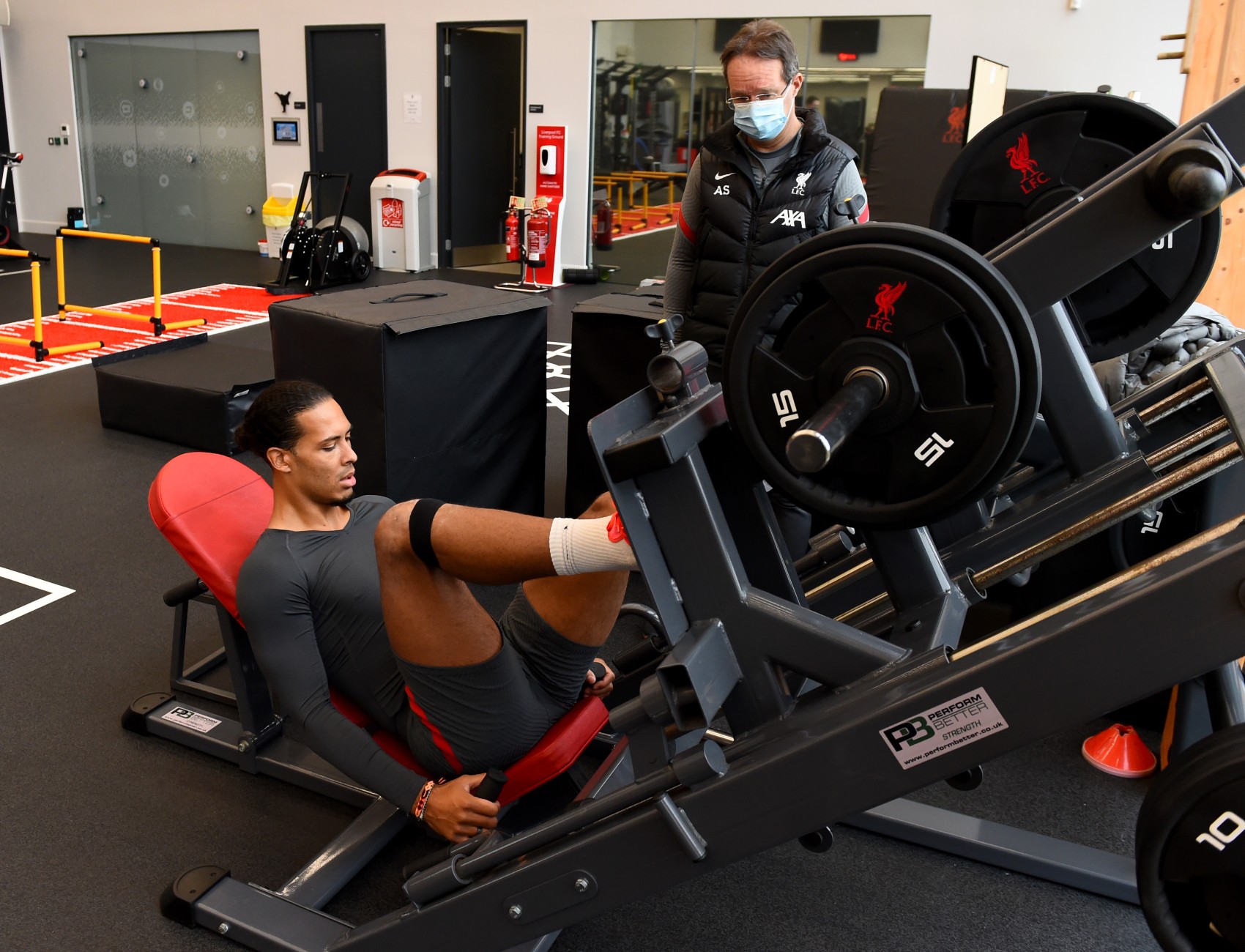
That process has, of course, needed to be heavily relied upon during a season that has included injuries on an unprecedented scale.
It is tough for Schlumberger to identify the factors behind this spike because he has only worked in the Premier League for a matter of months, but he adds: “Obviously I was working before in the German Bundesliga and the problems, or the challenges, are more or less the same.
“Since the coronavirus phase started in March last year, I was in contact with a lot of international colleagues - like Andreas Kornmayer, for example - because we all had great challenges.
“But the timeframes were different. In Germany, before the restart in May we had only a six-week break so things were different. I think in the Premier League and England the challenge was even more difficult due to the longer ‘off-season’ phase. To be honest, it is very difficult to assess what this means.
“What is obviously clear is that this season is the biggest challenge [of my career], but it’s similar to the challenge we have with the team with rehab: on the one hand you want to prepare players always as good as possible to have good loading capacity, to have loading reserves, but on the other hand it has to be safe. You cannot do too much because then the risk of injury increases, so it’s not easy.
“I think the game schedule always makes it not that easy but I think what is really missing is the pre-season. This is the challenge. Each team likes to have the pre-season to build up physical capacity, for tactical preparation and so on, and it is an important part of the season for each team. So to not have this is different.
“Without pre-season, it is more difficult to get the player in the typical rhythms of training and of games. The missing of some typical rhythm at the beginning of the season, this is one thing which influences on an injured player later on.
“On the other hand, if I look at it from my perspective on the individual load management during the week, meaning in training sessions [and] regarding planning in games and so on, this is not different to other years, I would say, because we have to look day by day on the small details.”
Upon Schlumberger’s arrival at the club, Klopp declared the decision to recruit his former Dortmund colleague to make “absolute sense”.
“It’s nothing to do really with me personally; yes, we know each other but it’s nothing to do with that. It was, for me, a chance for the club to bring in an outstanding person with an incredible knowledge about very important things in football. And that’s why he’s here,” the boss continued.
Schlumberger, meanwhile, reveals that he had always regarded the idea of a reunion with Klopp favourably.
“At the beginning when he moved to Liverpool, I was at Bayern Munich so it was not the time to think too intensively about that [working together again] because I was in a different job. But this was always in my mind for when the time was right to work together again,” he says.
“As a team manager, everybody knows that he likes to have specialists around him who he feels have enough quality for the goals of the club he works at, to trust totally these specialists because he knows they are professionals in their roles. That’s what I really appreciate in the collaboration with him.
“In the practical work, it was at Dortmund similar to here. We don’t have too much contact during the day because everybody has their own role and as long as the work is going in the right direction, you needn’t discuss it each day. That’s what I like, to always have big support in the things you do.
“This is so important if you want to work efficiently and effectively and you want to progress. That’s what I really like in the collaboration with him and that was also a reason for thinking about when we could work again together in the future.”
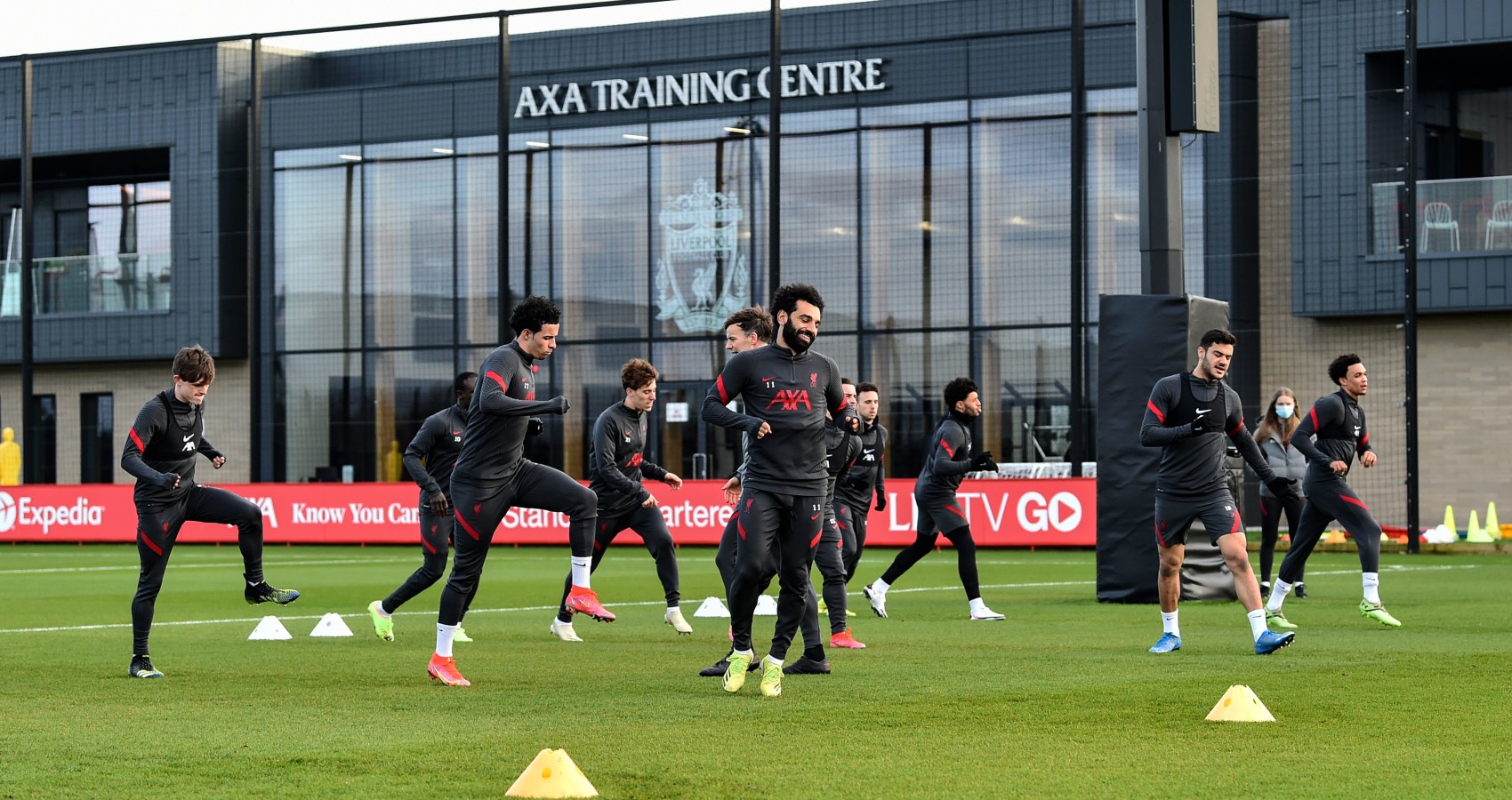
Schlumberger has settled quickly into Liverpudlian life, too, and is looking forward to experiencing both Anfield and the city in general once lockdown is lifted.
“I enjoy it, really. I don’t have to tell you what a big club it is!” he concludes.
“Unfortunately it’s difficult when you come to Liverpool in coronavirus times and there is lockdown because there are no supporters at the games and you also cannot feel in the city how the life around the games would be.
“I expect that in the one or two days before the game there would be a lot of supporters in the city and I live in the city centre. These are all things which I expected will happen in Liverpool but actually due to the lockdown, it has not been possible to have that feeling yet.
“I didn’t see Melwood, only the AXA Training Centre, which is unbelievable. I am really happy and really appreciate it to be able to work here.”


